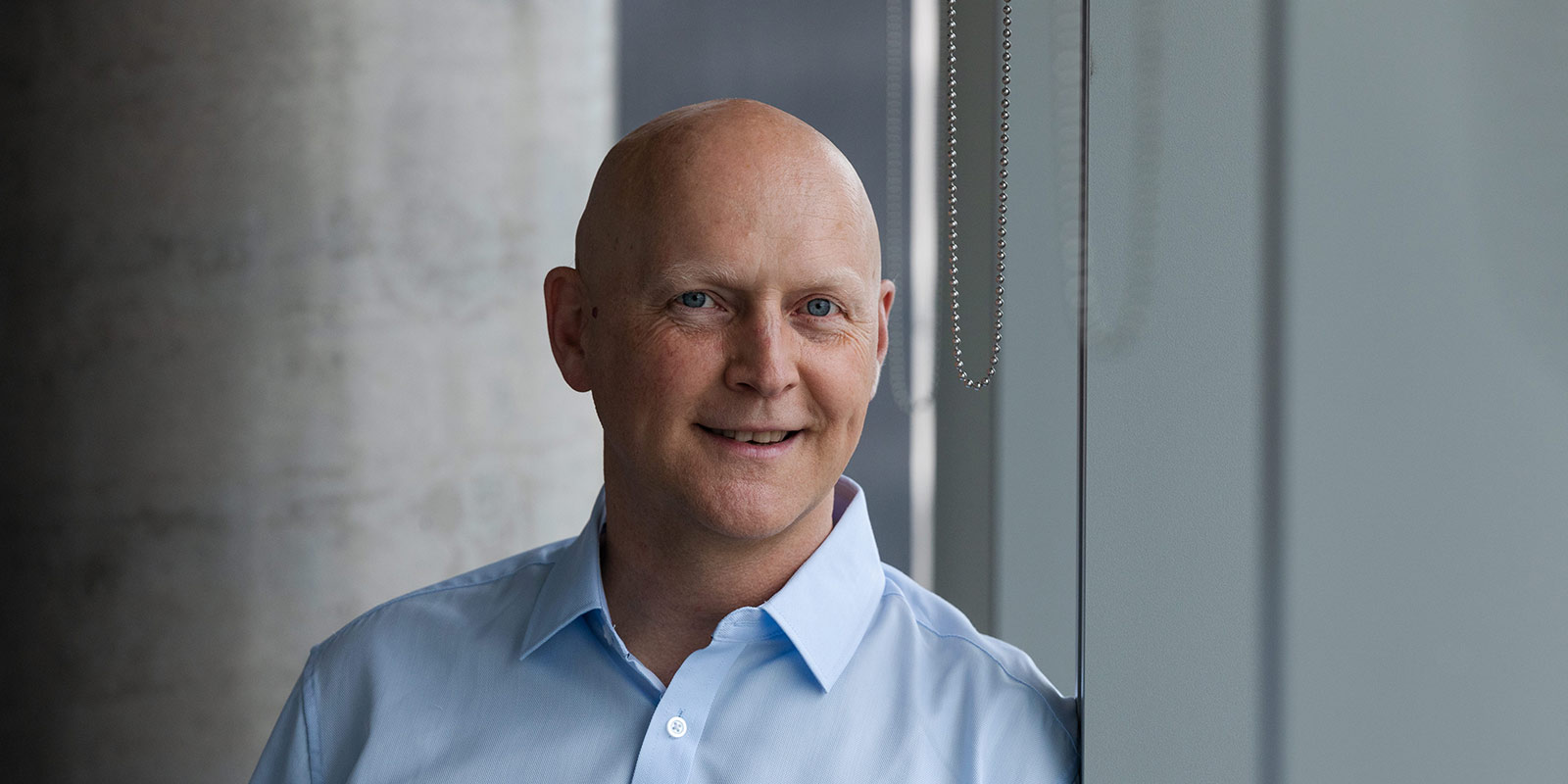Reimagining the relationship between corporations and society
Dr Tim Connor
Dr Tim Connor researches how to get the balance right between facilitating profit and protecting human rights and the environment.

In 1993, when still a young law student, Tim Connor was driving when a report came through on the radio about a devastating fire in the Kader Toy Factory in Thailand. The report told of how 188 lives were lost and 469 people were injured. The factory’s security guards told reporters that when the fire started they had been instructed by factory management to lock the doors to prevent workers from taking advantage of the smoke and confusion to steal the toys. Many of the workers jumped from upper-storey windows to escape the flames — many of them died, and those that survived only did so because the bodies of their co-workers who had jumped before them broke their fall. The factory had been producing Bart Simpson dolls and other toys for global corporations like Disney and Mattel, to be sold in the United States and other international markets.
Tim pulled over. Like many across the world, he felt grief and outrage. But Tim was also a student activist with a deep interest in the impact of global business on people’s lives — a couple of years earlier he had joined local students in South Korea to meet factory workers who worked in extreme conditions to produce goods sold in richer countries, and the encounter left him determined to get involved in efforts to push global corporations to think beyond their bottom line.
The Kader Toy Factory fire made it appallingly clear that the issue of worker exploitation in global production was more important than ever. After completing his law degree, Tim joined Oxfam Australia, and for the next fifteen years his research and advocacy contributed to a global campaign on working conditions in the supply chains of Adidas, Nike and other sports brands. He then went on to do his PhD, in which he investigated how much had changed in sports supply chains as a result of regulatory responses to this campaign – and how much had stayed the same.
In 2010, Tim became a lecturer in the School of Law and Justice at the University of Newcastle, which has given him the opportunity to broaden and deepen his research into what kinds of laws and regulatory processes have the most potential to push corporations to act in a more morally responsible manner.
A milestone for Tim was becoming one of the chief investigators on an Australian Research Council Linkage project that examined how effective ‘non-judicial grievance mechanisms’ are in combatting human rights abuses. In this ground-breaking research, Tim and his colleagues conducted 10 in-depth case studies across agribusiness, garments and mining industries in Indonesia and India and conducted over 500 interviews with more than 1,000 informants. The team published 20 public reports on the subject, and their book on their findings will soon be published by Cambridge University Press.
‘Non-judicial mechanisms are in the realm of soft law,’ he explains. ‘Such mechanisms can investigate or mediate and try to reach a solution that does not directly involve punishment by the state. While NJMs are definitely not a silver bullet, we found that in some circumstances they can usefully contribute to broader efforts to persuade global corporations to address human rights abuses linked to their operations.’
Tim’s move to academia has also allowed him to take a deep dive into the legal structure of corporations, in particular how and why corporate law tends to privilege the financial interests of investors (i.e., shareholders) over the interests of other people impacted by corporate activity. He has published on the theory of ‘shareholder primacy’ and its implications for the legal duties of company directors. And he is collaborating with a team at the University of Melbourne on a book that will explore how the very notion of what a corporation is shapes both corporate law and international law. This book will trace the histories of different ways of understanding the corporation and explore what’s at stake for the role, rights and responsibilities of corporations in following one tradition of thinking about the corporate form, rather than another.
Tim is a passionate teacher and has received national and university-level awards for the way he teaches corporate law.
‘Company Law is a compulsory course, and a lot of law students take it reluctantly, expecting it to be boring,’ he says, smiling. ‘But when we start examining how corporate law shapes companies’ impact in the world, they become much more interested’.
The University of Newcastle acknowledges the traditional custodians of the lands within our footprint areas: Awabakal, Darkinjung, Biripai, Worimi, Wonnarua, and Eora Nations. We also pay respect to the wisdom of our Elders past and present.
